The 2025 First Session of the Beijing Talent Salon Was Successfully Held
2025-03-17 17:19
On the afternoon of March 14, the 2025 First Session of the Beijing Talent Salon was successfully hosted by the Beijing Institute of Talent Development Strategy. Centered on the theme "Artificial Intelligence: Industrial Development and Talent Cultivation", the event invited experts including Tian Feng, Dean of the Kuaism Research Institute; Zhao Chen, Vice Dean of the School of Economics and Management at Beijing University of Posts and Telecommunications; Wang Wuyue, Chief Expert of the Haidian Data Element Comprehensive Service Center; and Li Sun, Deputy Director of the Platform Department at the Artificial Intelligence Research Institute of the China Academy of Information and Communications Technology. Together, they explored trends in AI industrial applications and in-depth discussions on talent cultivation and industry-education integration. The salon attracted over 40 participants from organizations such as the Beijing Human Resources Research Center, the Talent Exchange Center of the Ministry of Industry and Information Technology, the Beijing Overseas Talent Center, Qiyuan Laboratory, and the Talent Research Institute. The event was chaired by Zhou Wenxia, a Distinguished Expert of the Beijing Talent Development Strategy Research Institute and Professor at the School of Labor and Human Resources, Renmin University of China.

During the Keynote Speeches Session, Tian Feng, Dean of the Kuaism Research Institute, delivered a speech titled "AI+: Sustaining Success in Hard Technology." From a talent-driven perspective, he analyzed the core drivers of China's hard-tech rise and highlighted the success of Hangzhou's "Six Dragons" enterprises, attributing it to local government support in resource integration across strategic planning, technology, talent, and inclusive policies. He emphasized that young talents have become the main force in technological innovation and proposed enhancing living and career security for young professionals, fostering an innovation-friendly environment, and retaining talent through policy incentives.
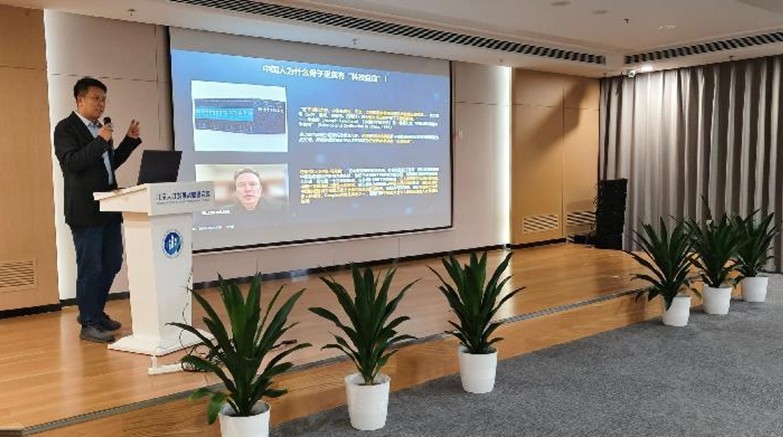
Tian Feng, Dean of the Kuaism Research Institute
Zhao Chen, Vice Dean of the Beijing University of Posts and Telecommunications, discussed "Multi-Dimensional Shaping and Pathways for Strategic Talent Development." He introduced innovative research methods based on large language model analysis and shared case studies on talent identification and cultivation in state-owned enterprises, providing insights into the evolution of key competencies for strategic scientific and engineering talents.
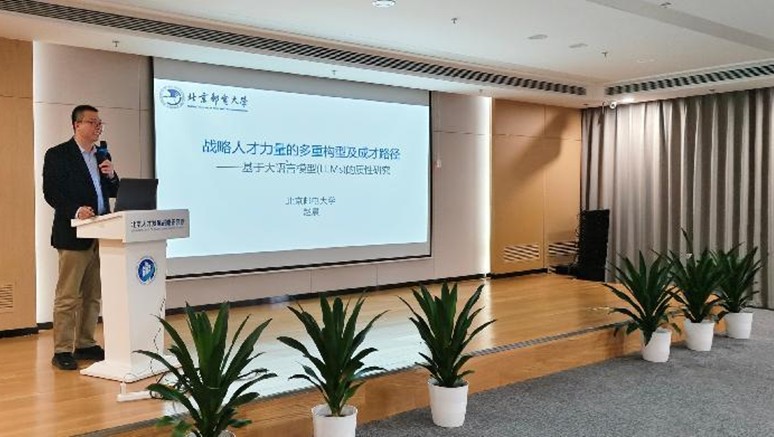
Zhao Chen, Vice Dean of the Beijing University of Posts and Telecommunications
Wang Wuyue, Chief Expert of the Haidian Data Element Comprehensive Service Center, focused on high-quality data and AI Agent trends in the post-training era. He outlined Haidian District’s data service strategies, proposing interdisciplinary talent cultivation through data competitions and industry-academia collaboration to advance data assetization and industrial innovation.
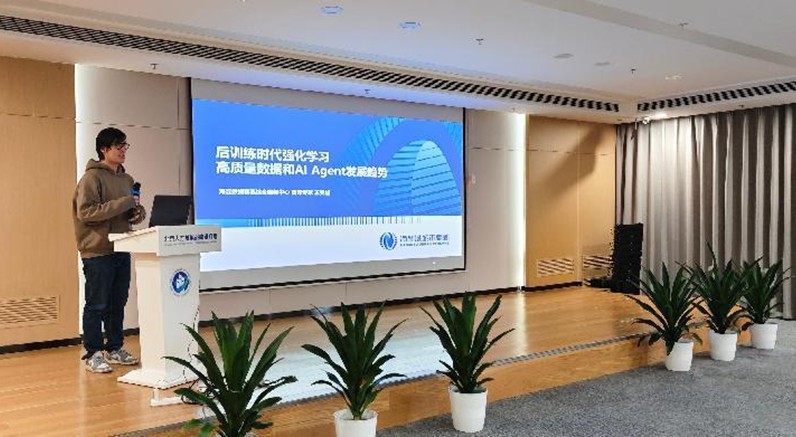
Wang Wuyue, Chief Expert of the Haidian Data Element Comprehensive Service Center
Li Sun, Deputy Director of the China Academy of Information and Communications Technology, addressed "AI: From Technological Breakthroughs (0-1) to Industrial Applications (1-100)." He analyzed China’s AI industrial chain development and emphasized six critical factors for large-scale model implementation, stressing the need for targeted skill development in research, training, and application scenarios for AI professionals.
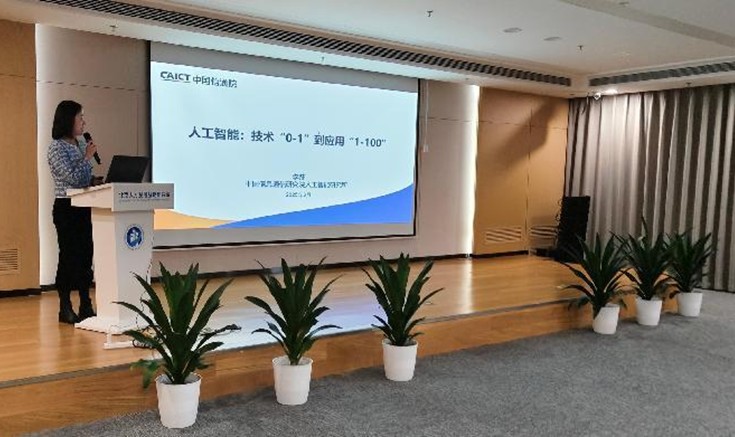
Li Sun, Deputy Director of the China Academy of Information and Communications Technology
During the Roundtable Discussion Session, experts engaged in in-depth discussions on topics including "Technology-Driven Talent Demand Transformation," "Challenges and Solutions in Industry-Education Integration," and "Issues in China’s Autonomous AI Talent Cultivation." Consensus emerged that rapid AI development necessitates higher talent standards, requiring policy innovation, industry-academia collaboration, and international recruitment to build an integrated ecosystem of talent, technology, industry, and innovation.
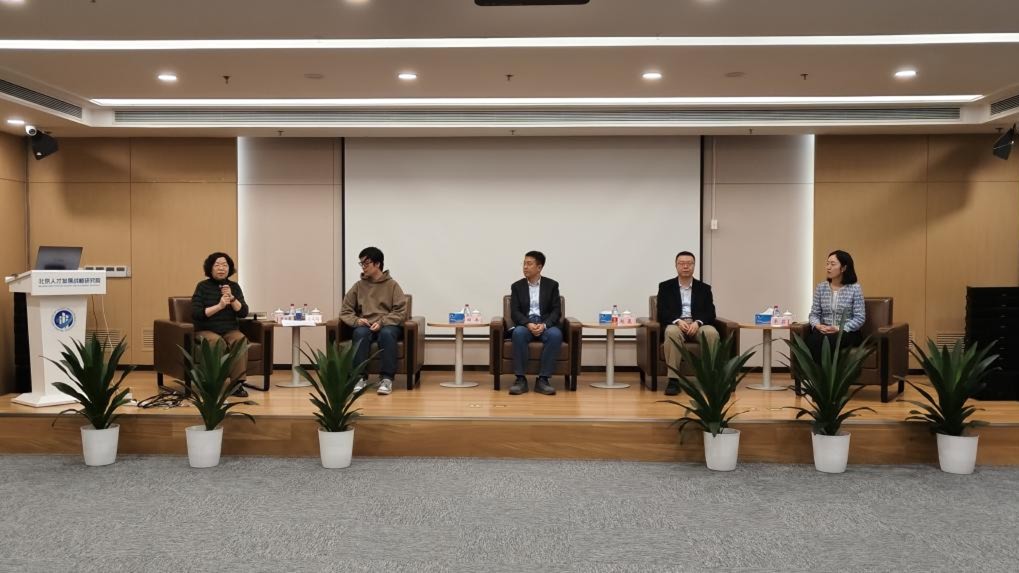
During the Roundtable Discussion Session, the participating experts and scholars engaged in in-depth discussions on key challenges and critical issues in the field of artificial intelligence talent development.
Amid deep integration between AI innovation and industrial transformation, this salon provided a multi-dimensional dialogue platform for government, industry, academia, and research institutions. The insights generated will serve as a critical reference for Beijing’s efforts to establish itself as a global hub for AI innovation.

